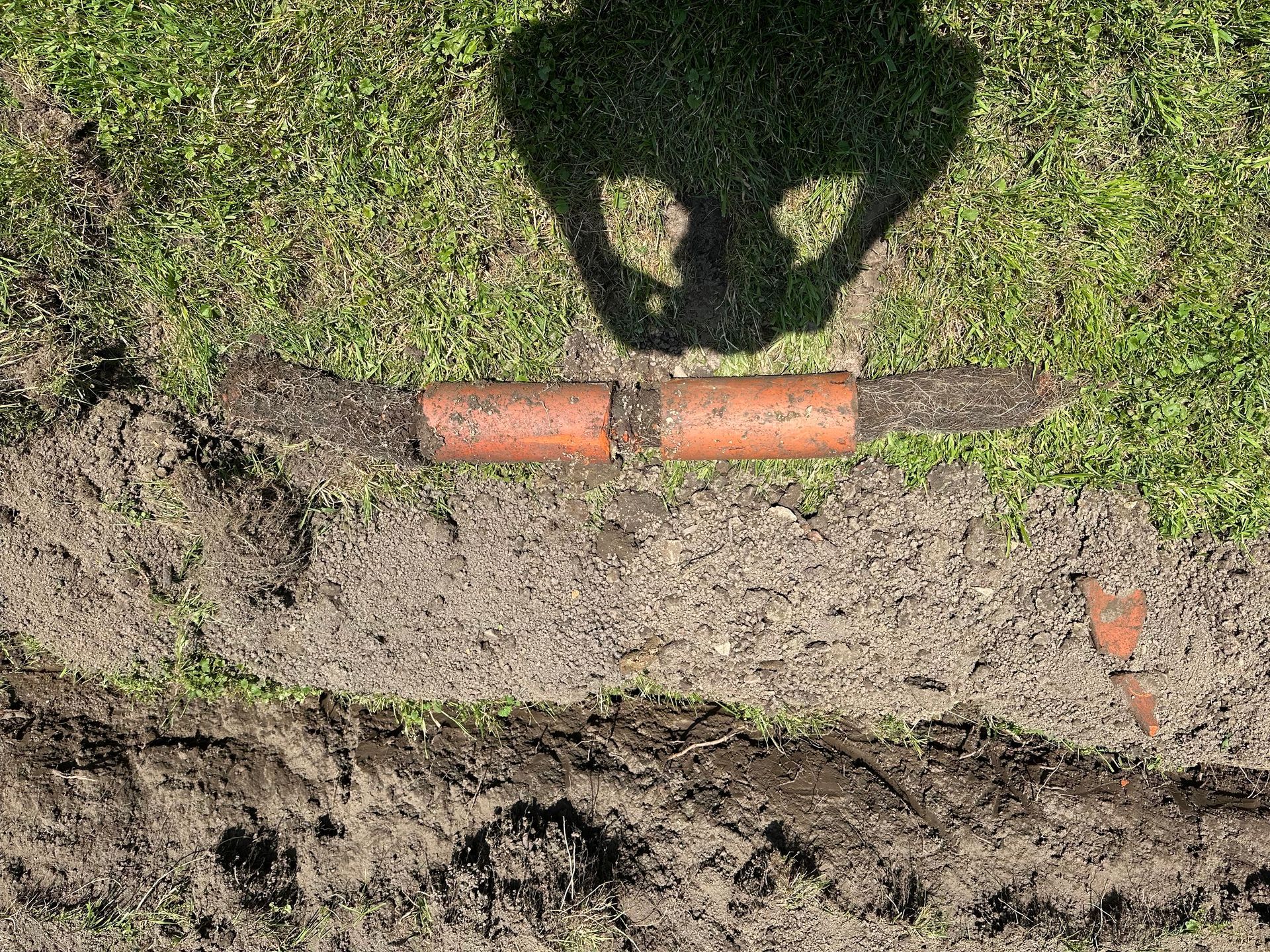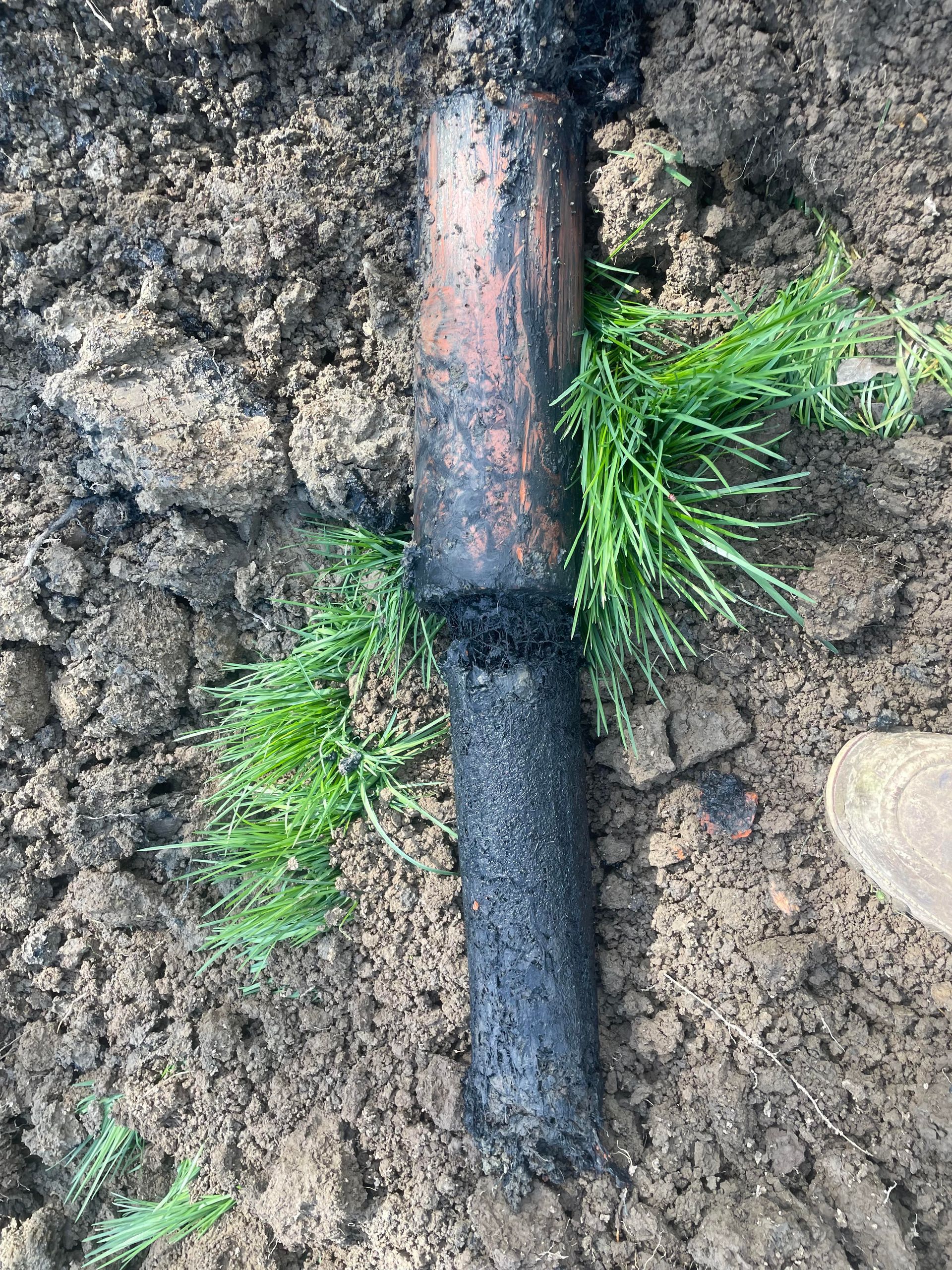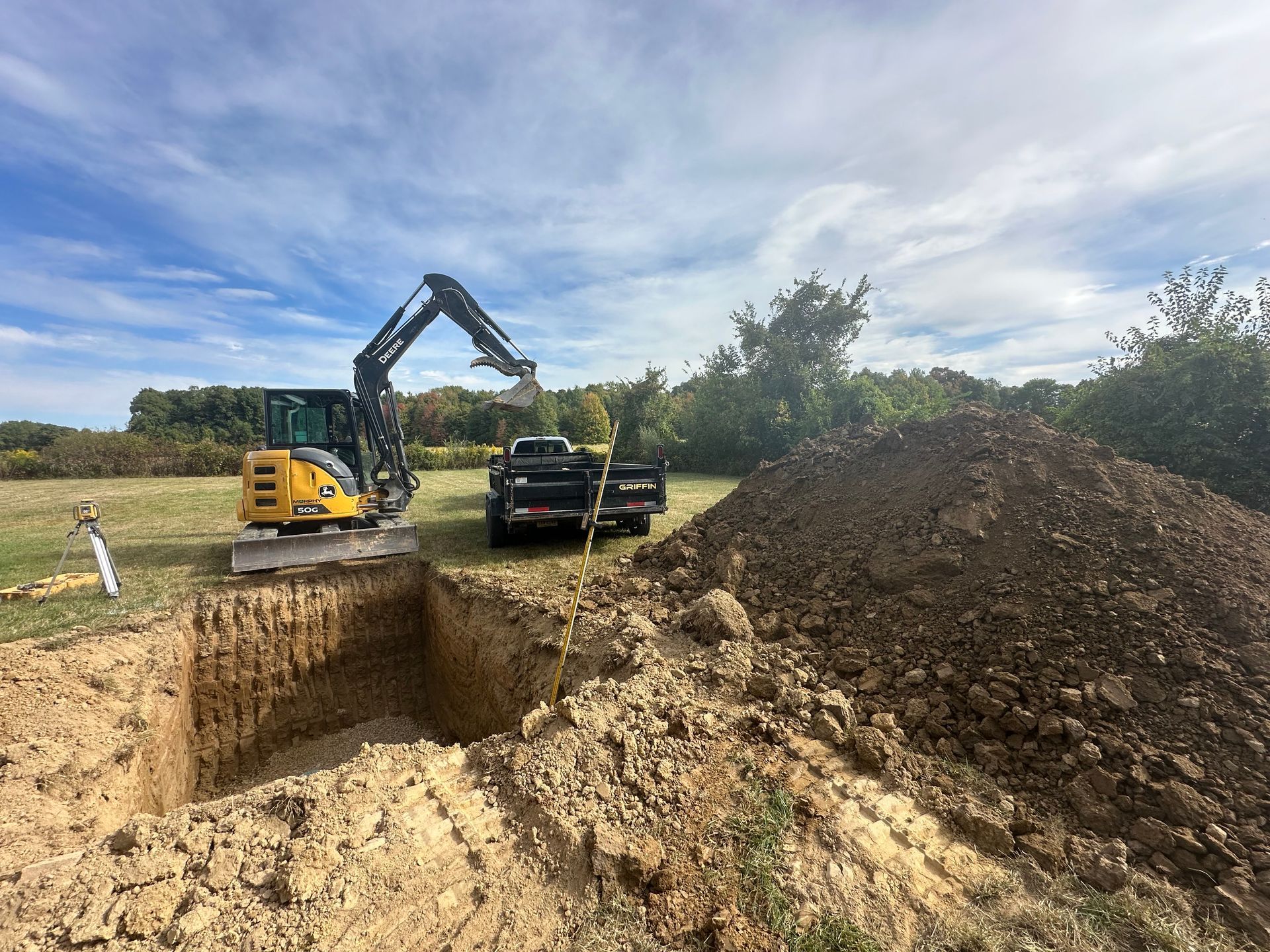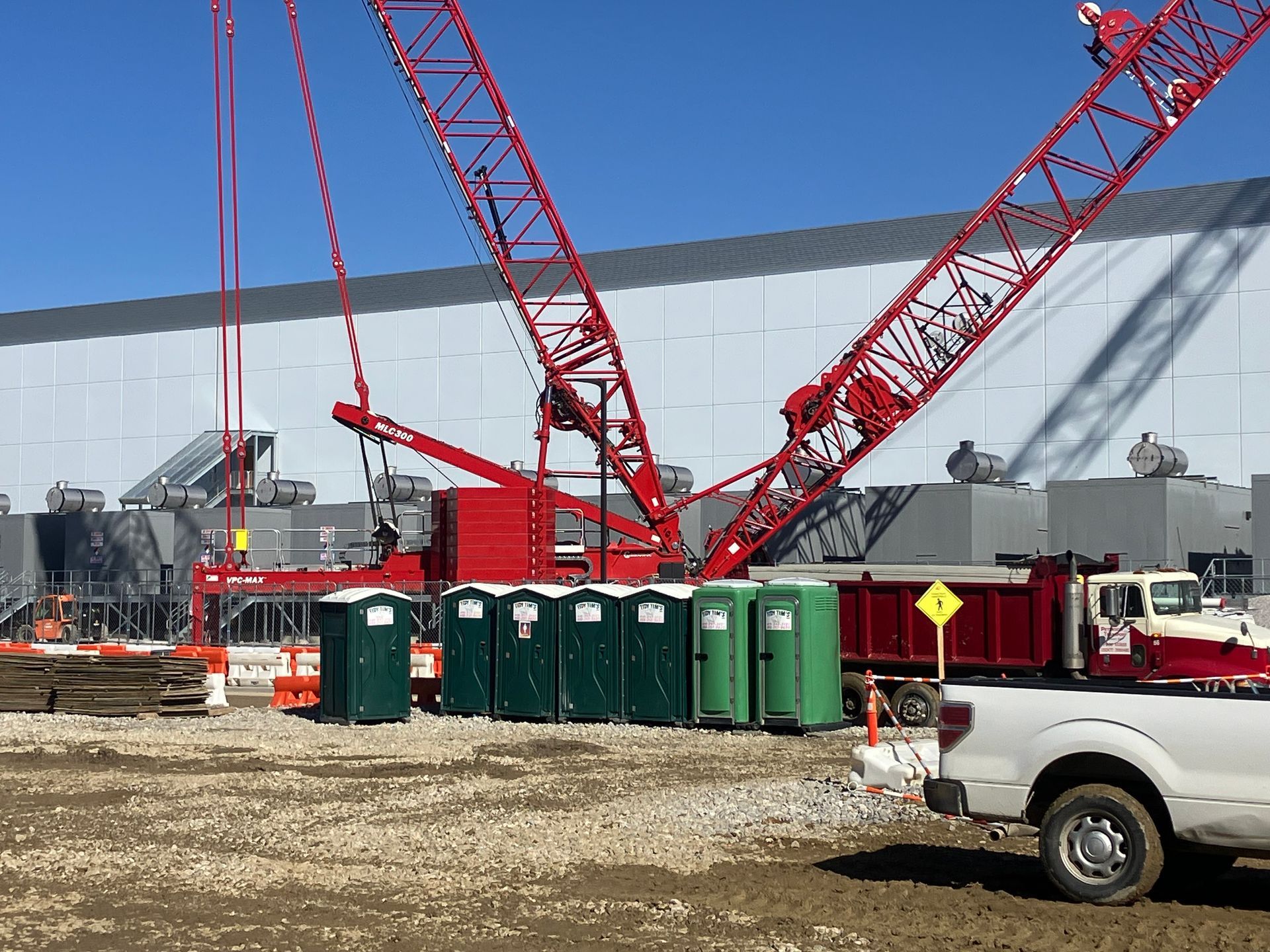What is the Age of Your Septic System? A Homeowner’s Guide
Septic systems typically last around 20-30 years, but factors like maintenance, soil conditions, and tree root intrusion can affect their lifespan. If your system is over 20 years old, it’s time to start planning for a replacement. Proper care, regular maintenance, and avoiding bleach can help extend the life of your system.

Key Takeaways
- Septic systems can last 20-30 years with proper care.
- Leach fields and filtration systems play a crucial role in longevity.
- Tree roots can damage septic systems over time.
- Regular cleaning improves secondary treatments.
- If your system is over 20 years old, it’s time to start planning for replacement.
- Never dump bleach into your system - it kills beneficial bacteria.
- Use Bio Force to support your septic system’s breakdown process.
- Some companies, like Tidy Tim's, offer year-round septic pumping services.
Your septic system works behind the scenes, efficiently managing waste and keeping your home’s plumbing running smoothly. But have you ever stopped to ask: How old is my septic system? Understanding its age and condition is crucial to avoiding costly repairs or unexpected failures.
In this guide, we’ll explore the typical lifespan of septic systems, how to recognize signs of aging, and what you can do to extend its life. Whether your system is 5 years or 25 years old, now is the best time to plan ahead.
How Long Do Septic Systems Last?
A well-maintained septic system can last 20 to 30 years or more, depending on various factors:
- Tank material: Concrete tanks last longer than steel or plastic.
- Soil conditions: Poor drainage can wear out a system faster.
- Household usage: The more wastewater produced, the harder the system works.
- Maintenance: Regular pumping and inspections extend system life.
If your septic system is over 20 years old, it’s time to start thinking about replacement options.
For a detailed guide on pumping frequency and why it matters, check out Maintaining Your Home’s Septic System: Top 8 Reasons to Have Your Septic Tank Pumped Regularly.
Signs Your Septic System is Aging
Not sure how old your system is? Here are some red flags that indicate your septic system might be on its last leg:
- Slow drains and backups in sinks, tubs, or toilets.
- Soggy areas or pooling water near the drain field.
- Strong sewage odors outside your home.
- Frequent pumping needed despite regular maintenance.
- Gurgling sounds from drains when using water.
If you notice any of these signs, it’s time to schedule a professional inspection.
The Role of Leach Fields and Filtration Systems
Your septic system doesn’t just include the tank - it also has a leach field and filtration system that help clean wastewater before it returns to the soil. Over time, these components can become clogged or fail, reducing efficiency and increasing the risk of failure.
Regular maintenance and ensuring proper wastewater treatment can help these components last longer.
The Impact of Tree Root Growth
Tree roots are naturally drawn to moisture - unfortunately, that includes your septic system. As time passes, roots can:
- Crack or invade septic pipes.
- Block drainage in the leach field.
- Cause costly repairs or system failures.
If you have trees near your system, consider root barriers and professional inspections to prevent damage.
Can Cleaning Your Effluent Help Secondary Treatments?
Yes! Effluent filter cleaning is a key part of maintaining your system’s efficiency. By regularly pumping your tank and ensuring the effluent filter is free from solid waste buildup, you improve the secondary treatment process in your leach field. This extends the lifespan of your system and helps prevent backups.
Effluent cleaning refers to the process of removing solids and impurities from the effluent filter, which is the partially treated wastewater that exits the septic tank and flows into the drain field. While the septic tank separates solids from liquids, some small particles still remain in the effluent. Regular pumping and maintenance help ensure that this effluent is cleaner before it reaches the secondary treatment stage (usually the leach field), preventing buildup, clogs, and system overload.
When to Start Planning for Replacement
Once your septic system reaches 20 years, it’s time to start planning for a replacement. While your system may continue working for several more years, having a plan ensures you won’t be caught off guard by an emergency failure.
Now’s the perfect time to talk to an expert about evaluating your system’s condition and planning a cost-effective upgrade.
For questions you should be asking before a replacement, visit Top 10 Questions to Ask When Replacing Your Septic System in Ohio.
The Right Way to Maintain Your Septic System
To keep your system running efficiently and lasting as long as possible, follow these key maintenance tips:
- Never dump bleach or harsh chemicals into your system - these kill the beneficial bacteria that break down waste.
- Use Bio Force to maintain a healthy bacterial balance and break down waste more effectively. Bio Force is a septic tank treatment that introduces helpful bacteria and enzymes to your system, which aid in breaking down solid waste, reducing odors, and promoting optimal system performance.
- Pump your tank regularly - every 3-5 years for most households. Some companies even offer year-round septic pumping services to ensure your system stays on track. Tidy Tim’s is proud to provide this convenient service year-round for Central Ohio homeowners.
- Conserve water to reduce strain on the system.
- Inspect for tree root growth and remove intrusions before they cause damage.
FAQ
How do I find out how old my septic system is?
Check your home’s records or permits, contact your local health department to see if they have any records on file, or contact a professional septic service to inspect the system.
Can I extend the life of my old septic system?
Yes! Proper care, regular maintenance, and avoiding chemicals like bleach can help maximize its lifespan.
When should I replace my septic system?
If your system is over 20 years old and showing signs of failure, start planning for a replacement now.
What happens if I don’t replace an aging system?
Old septic systems can fail, leading to backups, contamination, and costly emergency repairs.
Can tree roots really damage my septic system?
Yes! Tree roots can crack pipes, block drainage, and shorten the lifespan of your system.
Where can I find answers to more questions about septic pumping?
Visit Ask the Experts: Top 3 Questions from Homeowners about Getting Septic Tanks Pumped.
Conclusion
Your septic system won’t last forever, but with proper care and early planning, you can avoid costly surprises. If your system is over 20 years old, now is the time to start thinking about your options. Whether you need an inspection, maintenance, or a replacement plan, Tidy Tim’s is here to help.
Get a Quote Today
Don’t wait until it’s too late - schedule an inspection and get a personalized plan for your septic system. Get a quote today!



